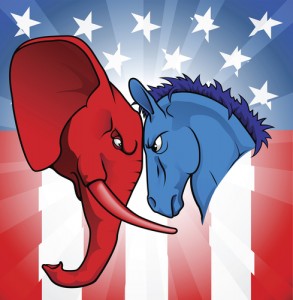I recently wrote an article for the Houston Business Journal on this subject, which can be found here.
With the 2016 election campaign already going strong, now is a good time to review company policies in this area to ensure political discussions in the workplace remain civil, and will not result in harassment complaints or fist fights. Some tips from the article include:
- Employees of private companies generally have no right to free speech in the workplace. Management has the right to limit discussions which disrupt the workplace or impact productivity.

- Most employees have no desire to hand out literature or campaign for a candidate at work; if you have someone who wants to take such steps, consider your solicitation policy and the need for consistency – you may have to allow a union to solicit your workers if you allow solicitations for a particular candidate or cause.
- Be particularly vigilant in regard to political discussions in the workplace which cross over into racial or religious issues. These types of discussions can easily become heated and misconstrued as evidence of discriminatory bias, especially if undertaken by a supervisor or other official responsible for making employment decisions.
- There is no legal requirement that employers or management be neutral in election campaigns, but it helps for management to set an example when it comes to respectful workplace discussion. Remember – there will be a lot of unhappy people the day after the election (no matter what happens) and gloating or retaliation against a coworker is not good for morale.
- Lastly, do not allow employees (especially management) to question coworkers about their vote – in Texas (and most states) it is illegal to retaliate against someone based on their vote, and many employees are uncomfortable with disclosing their views.


Leave a Reply